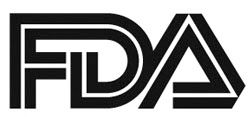Imetelstat Granted Fast Track Designation by the FDA
The FDA has granted a fast track designation to imetelstat for the treatment of adult patients with relapsed or refractory myelofibrosis who have intermediate-2 or high-risk disease. This designation is inclusive of patients with primary MF or those who developed MF after thrombocythemia or polycythemia vera, according to a press release from Geron Corporation, the developer of the drug.<br />

The FDA has granted a fast track designation to imetelstat for the treatment of adult patients with relapsed or refractory myelofibrosis (MF) who have intermediate-2 or high-risk disease. This designation is inclusive of patients with primary MF or those who developed MF after thrombocythemia or polycythemia vera, according to a press release from Geron Corporation, the developer of the drug.1
The drug is under investigation in this population in the ongoing phase II IMbark study, for which overall survival (OS) data were presented at the 2018 American Society of Hematology (ASH) Annual Meeting.
Imetelstat is a novel, potent telomerase inhibitor, administered by intravenous infusion. Based on preclinical data, imetelstat may have disease-modifying activity, and as a result, it is being developed in hematologic malignancies.1
The randomized multicenter, phase II IMbark trial enrolled 107 patients at 55 institutions. Two doses of imetelstat were administered to patients with MF, who are relapsed/refractory to janus kinase (JAK) inhibition. The primary endpoints for the study were spleen response rate and symptoms response rate.
The results show that the arm receiving imetelstat 4.7 mg/kg every 3 weeks had a median OS of 19.9 months. The median OS in the 9.4 mg/kg arm has not yet been reached. At 18-month follow-up, patients in the study had survival rates of 76.7% and 62.9%.2
Toxicities were considered acceptable by the investigators. In the 9.4 mg/kg arm, the adverse events (AEs) were thrombocytopenia (49%), anemia (44%), neutropenia (36%), and nausea (34%). For patients receiving 4.7 mg/kg of imetelstat, the AEs were diarrhea (38%), nausea (31%), anemia (31%), and thrombocytopenia (23%). Additionally, grade 3 and 4 AEs, such as neutropenia and thrombocytopenia, were seen more frequently in the 9.4mg/kg arm.2
These data show potential improvement in outcomes for patients with MF who are relapsed or refractory to JAK inhibition. Previous data show that OS in these patients was about 14 months.3
Based on the data from IMbark, investigators consider imetelstat to be a promising agent for patients with MF who were previously treated with JAK inhibitors. Geron announced its plans to hold an End of Phase 2 meeting with the FDA by the end of first quarter 2020.
References
- Geron Announces Fast Track Designation Granted to Imetelstat for Relapsed/Refractory Myelofibrosis [press release]. Geron Corporation Menlo Park, Calif. Sept. 30, 2019. https://bit.ly/2p36PHp, Accessed September 30, 2019.
- Mascarenhas J, Komioki RS, Cavo M, et al. Imetelstat Is Effective Treatment for Patients with Intermediate-2 or High-Risk Myelofibrosis Who Have Relapsed on or Are Refractory to Janus Kinase Inhibitor Therapy: Results of Phase 2 Randomized Study of Two Dose Levels.Blood.132(Suppl 1), 685. Accessed September 30, 2019. https://doi.org/10.1182/blood-2018-99-115163.
- Newberry KJ, Patel K, Masarova L. Clonal evolution and outcomes in myelofibrosis after ruxolitinib discontinuation.Blood.130(9), 1125-1131. Accessed September 30, 2019. https://doi.org/10.1182/blood-2017-05-783225
Scott Evaluates Treatment Options for Hydroxyurea-Resistant Polycythemia Vera
March 28th 2024In a Community Case Forum event in partnership with the Washington State Medical Oncology Society, Bart Scott, MD, broke down various trials of hydroxyurea, ruxolitinib, and interferon in patients with polycythemia vera to assess outcomes such as hematocrit control and molecular response.
Read More
Weighing the Triggers for Initiating JAK2 Inhibition Therapy in MF
March 23rd 2024During a Case-Based Roundtable® event, Raajit K. Rampal, MD, PhD, discussed the triggers physicians need to consider when deciding to initiate therapy for patients with myelofibrosis in the first article of a 2-part series.
Read More
Participants Discuss Treating a Patient With Myelofibrosis and Anemia
March 18th 2024During a Targeted Oncology™ Case-Based Roundtable™ event, Salman Fazal, MD, discussed with participants which symptoms of myelofibrosis impact their quality of life and how they would treat a patient experiencing anemia.
Read More